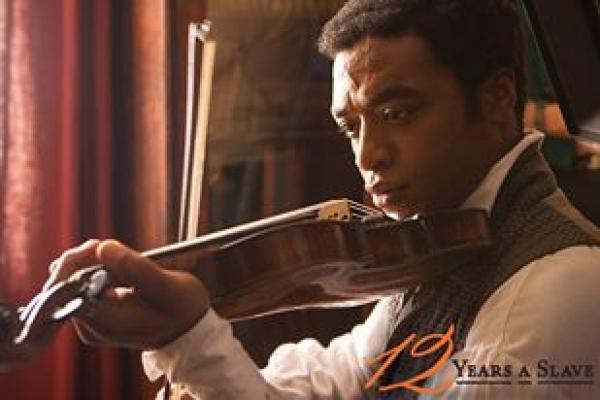I watched 12 Years a Slave today. The film is based on Solomon Northup’s autobiography by that name. Northrup was a free black man living in Saratoga, N.Y. He was lured away from his home to Washington, D. C., on the promise of lucrative work and was kidnapped, transported to Louisiana, and sold into slavery. He was rescued 12 years later.
Some of the questions and issues that the movie raises are: What right do people have to own others? Do money and might make right? Unjust laws — such as slave laws — exist. It just goes to show that something can be legal, yet morally wrong. Still, laws come and go. We must not confuse laws with rights, which are universal and enduring truths that do not change. What is true and right and good is always so. So, too, that which is evil is always evil. Even if unjust laws are overturned and abolished, evil can still return in other guises.
I asked myself as I watched the movie, “Could it happen again?” Some of us may think, “Surely, something like this could never happen in our day.” And yet, people are abducted and sold into various forms of slavery here and abroad on a daily basis. Granted — people are not publicly bought and sold on the slave block in America today because of skin color; however, people are enslaved based on race and class divisions.
I hear that redlining still exists, though cloaked in banking and business subtleties. I see that Jim Crow laws may be returning in many places, now that the Supreme Court has given states the right to oversee their own voting procedures. It is incumbent on us to call on Congress to act upon the Supreme Court’s ruling to put forth a contemporary formula for Section 4 “preclearance” so as to guard against the erosion of voting rights for minorities. The various costs involved in obtaining such things as identification cards for voting makes it difficult for many minorities as well as the young and old to exercise their fundamental democratic right to vote.
What if those of us who experience privileges that money can buy lose our privileges based on the loss of money? What if the laws change and those who are free and those who own or oppress other people lose their liberty and become slaves, as the film 12 Years a Slave suggests? Most likely, Solomon Northrup hadn’t thought it could happen to him. His slave owner thought it would never happen to him.
What about you and me? What would those of us who are free do differently if we knew the fate of those enslaved in various ways through poverty and economic exploitation or through injustices in the criminal justice system could be our own? Would we seek to free them? Would we seek to change the laws to ensure that laws reflect everyone’s fundamental rights? Would we seek to transform a criminal justice system that imprisons an inordinate percentage of African-American men, far beyond their numbers in the society at large? The prison system is a booming business in many spheres. What can we do to make sure it is not a modern-day slave block?
By becoming vigilant and making sure that such sectors as the government, the market (such as Wall Street, which was once built on the back of the cotton industry), criminal justice, and the educational system cultivate comprehensive reforms for equity so that people no matter their skin color get ahead and never fall back into slavery.
Only as we fight for political, judicial, economic, and educational freedom for all can each of us remain free. As 12 Years a Slave makes clear, something spiritual dies eternally in each of us as we fail to resist evil rather than support those in need. What is needed today, just as in the time of Northrup, is to experience again the better angels of our nature’s touch as we embrace justice, not just for some, but for all.
Paul Louis Metzger, Ph.D., is Professor of Christian Theology & Theology of Culture and Director of The Institute for the Theology of Culture: New Wine, New Wineskins, Multnomah University. He is the author of numerous works, including the award-winning volume, Consuming Jesus: Beyond Race and Class Divisions in a Consumer Church (Eerdmans). He blogs regularly at “Uncommon God, Common Good” at Patheos.
Got something to say about what you're reading? We value your feedback!
